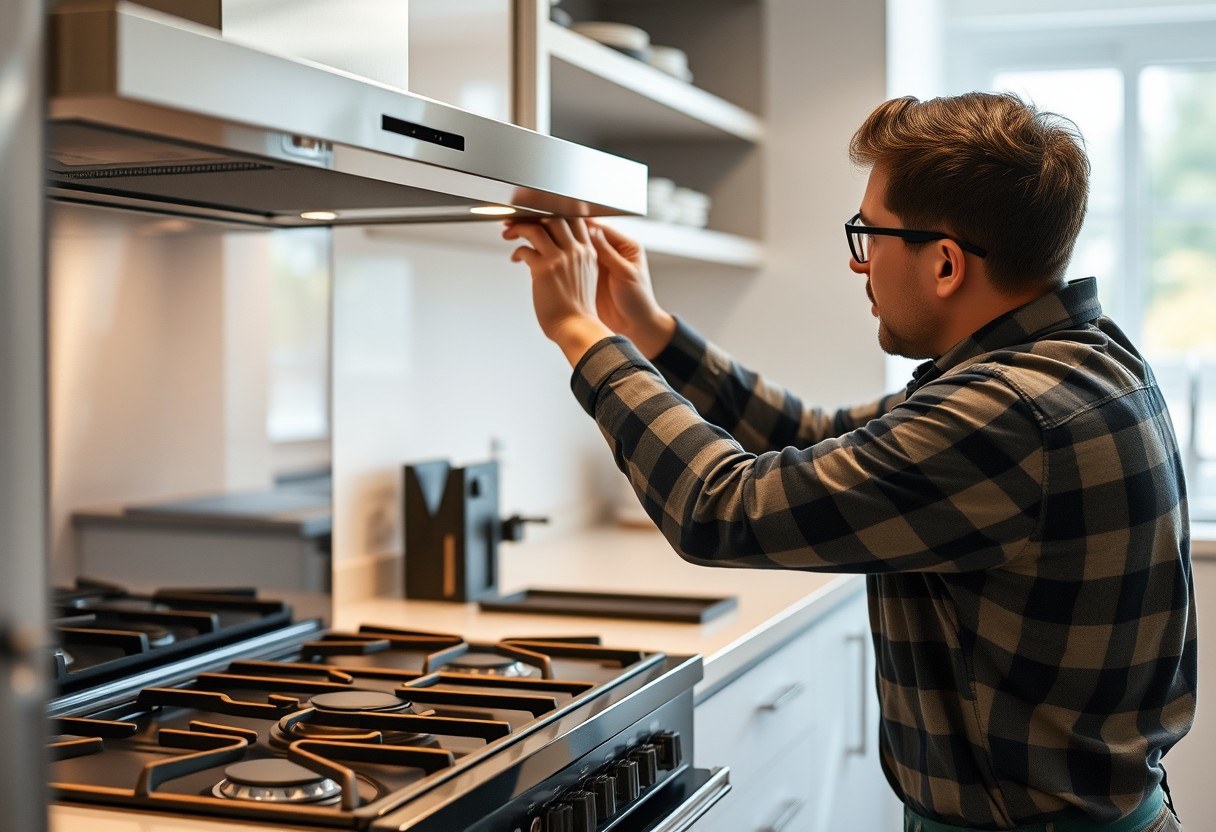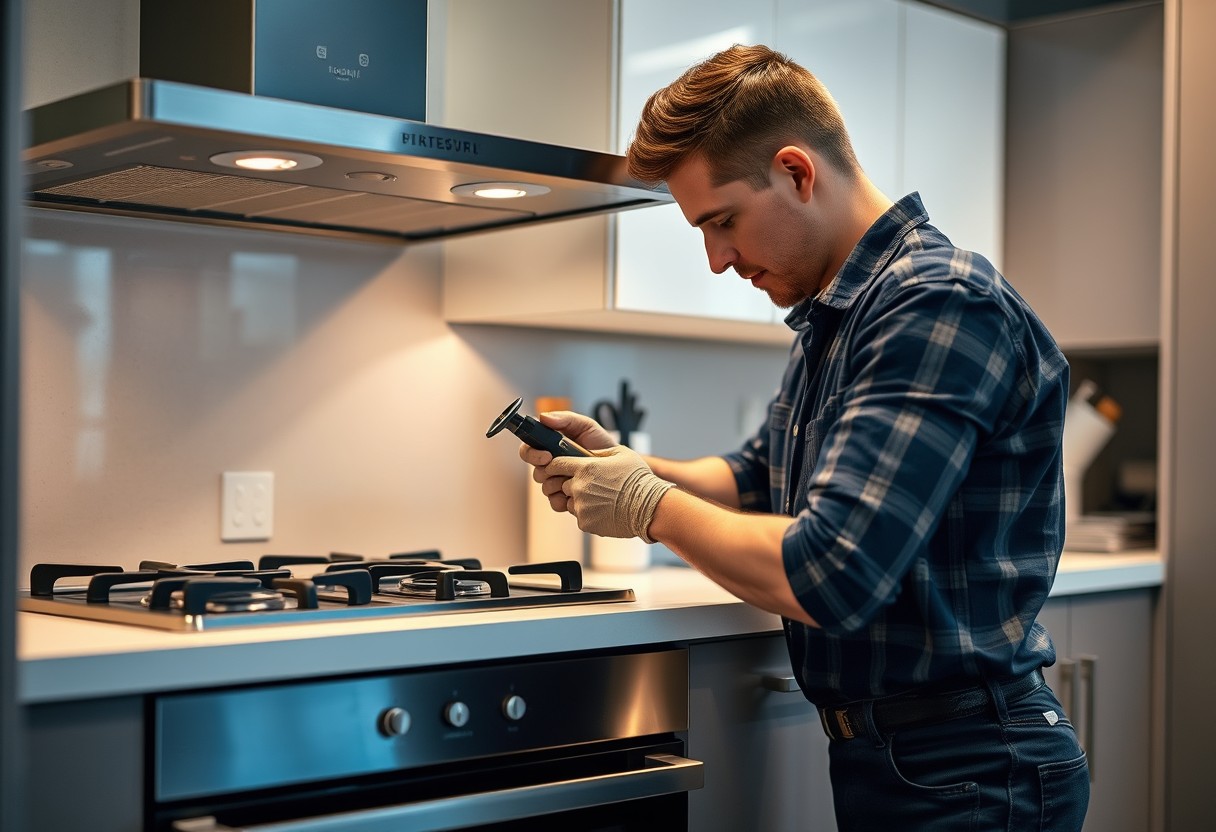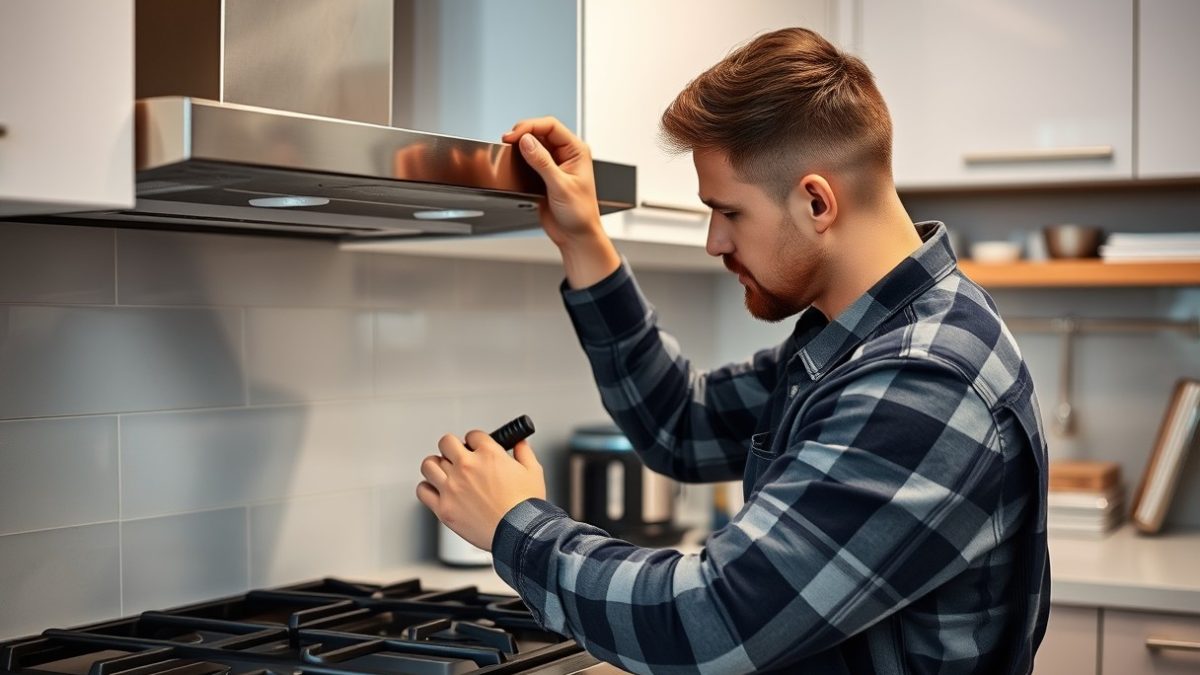
What Role Do Extended Warranties Play In Elevating Customer Satisfaction?
September 23, 2024
Gas appliance installations by Servisure
September 25, 2024Many homeowners overlook the importance of a proper gas appliance installation, which can lead to serious safety risks such as gas leaks or explosions. To ensure you create a safe and functional environment in your home, it is crucial that you follow the appropriate guidelines and regulations for gas appliance installations. This post will equip you with important tips and expert recommendations to guarantee that your installations are not only seamless but also compliant with safety standards. By taking the right precautions, you can enjoy the benefits of your gas appliances without compromising your family’s safety.
Key Takeaways:
- Hire Qualified Professionals: Always ensure that installations are performed by licensed and experienced gas appliance technicians to adhere to safety regulations and local codes.
- Conduct Proper Ventilation: Ensure that your home has adequate ventilation systems in place to prevent gas buildup and to promote air circulation around the appliance.
- Regular Maintenance Checks: Schedule routine maintenance and inspections for your gas appliances to identify potential issues and ensure they function efficiently and safely.

Understanding Gas Appliances
For homeowners contemplating upgrades or new installations, understanding gas appliances is crucial. These appliances operate by burning gas, typically natural gas or propane, to generate heat for cooking, heating, and other household needs. With the right knowledge, you can ensure that these installations are carried out safely and efficiently, significantly benefiting your home.
Types of Gas Appliances
The variety of gas appliances available can suit different purposes in your household. Below is a breakdown of the common types:
| Cooking Appliances | Includes gas stoves, ovens, and ranges for preparing meals. |
| Heating Appliances | Includes furnaces, boilers, and wall heaters for temperature control. |
| Water Heating Appliances | Includes gas water heaters and tankless systems. |
| Outdoor Appliances | Includes grills, fire pits, and patio heaters. |
| Dryers | Gas-powered dryers offer efficient clothes drying solutions. |
After familiarizing yourself with the different types of gas appliances, you can make informed decisions about which ones align with your needs.
Benefits of Gas Appliances
Appliances powered by gas come with several advantages that can enhance your everyday life. The most notable benefits include rapid heating capabilities, cost-effectiveness, and environmental sustainability. When choosing gas appliances, you’ll find that they generally offer a higher efficiency rate compared to their electric counterparts, translating in substantial savings on your energy bills.
Additionally, gas connections provide consistent heat levels that are perfect for cooking and maintaining a comfortable home environment. The immediate and adjustable heat output of gas appliances allows you to have greater control over your cooking processes and indoor warmth.
A major benefit of gas appliances is their reliability during power outages. Unlike electric appliances, gas units can still function when the electricity is out, keeping your home warm and your food cooked during emergencies.
Common Misconceptions
Misconceptions surrounding gas appliances often lead to hesitation and misunderstandings among homeowners. A prevalent myth is that all gas appliances pose safety risks due to gas leaks. While it is true that gas leaks can be dangerous, when properly installed and maintained, gas appliances are generally safe for usage. Regular inspections and maintenance can significantly mitigate risks.
Furthermore, some believe that gas appliances are more difficult to install than electric ones; however, with skilled professionals and appropriate guidelines, the installation of gas appliances can be seamless and straightforward. The key is to choose certified technicians for installation to ensure adherence to safety regulations.
Understanding these misconceptions allows you to make better choices for your home, ensuring both safety and efficiency when adopting gas-based solutions.
Preparing for Installation
The preparation stage is crucial to ensuring your gas appliance installations go smoothly and safely. You need to take several important steps before the actual process begins. This includes understanding the specific requirements of your home, ensuring compliance with local regulations, and selecting the optimal location for your new appliance. Taking these steps will not only help facilitate a seamless installation but also enhance the performance and longevity of your gas appliances.
Assessing Your Home’s Requirements
The first step in preparing for your gas appliance installation is assessing your home’s requirements. You should evaluate whether your existing plumbing and electrical systems can support the new appliances. This includes checking for adequate gas supply lines, proper ventilation, and electrical outlets. If your home requires upgrades or modifications, it’s best to address these before installation day to avoid delays.
Additionally, consider the size and space available for the appliance. Each gas appliance will have specific space requirements outlined in the manufacturer’s guidelines. Measure the area where you plan to install the appliance, taking into account clearance space for safety and accessibility.
Understanding Local Codes and Regulations
One imperative aspect of preparing for installation is understanding local codes and regulations. Each municipality has its own set of guidelines regarding the installation of gas appliances, which are designed to ensure safety and compliance. You should contact your local building department or fire marshal to obtain the necessary permits and verify requirements specific to your area. Ignoring these regulations can lead to serious consequences, such as fines or the need for costly re-installations.
It’s important to recognize that adhering to these local codes not only helps avoid legal issues but also contributes to the overall safety of your home. Proper installation practices reduce the risk of gas leaks, explosions, and fire hazards, ultimately protecting not just your property but also your family.
Choosing the Right Location for Appliance Installation
To select the right location for your gas appliance installation, you must consider several factors, including safety, accessibility, and efficiency. For example, proper ventilation is imperative for many gas appliances, so it’s important to choose an area with sufficient airflow. Additionally, ensure that there’s easy access for maintenance and repairs in the future.
Moreover, the placement of your gas appliances can affect their performance. A gas stove should be located away from walls and corners to provide adequate cooking space, while a gas dryer should be placed near a vent to allow for the expulsion of moisture. Carefully consider these elements to ensure optimal functionality.
Plus, you may want to think about how the installation location affects your daily routine. Convenience matters; placing your appliances in a logical, accessible area can enhance your overall experience, making your cooking and cleaning more efficient.
Selecting a Qualified Professional
Not all gas appliance installations are created equal, and selecting the right professional is pivotal to ensuring safety and efficiency. The risks associated with improper installations can lead to hazardous situations, ranging from gas leaks to fires. Therefore, prioritizing a professional with the right qualifications and experience is important for protecting your home and loved ones.
Importance of Experienced Installers
One crucial aspect of selecting a qualified professional for gas appliance installations is the importance of experienced installers. When you hire someone with extensive experience, you significantly reduce the chances of accidents or malfunctions down the line. Experienced professionals understand the nuances of various gas appliances, local regulations, and best practices. Their knowledge will not only ensure that your installation is compliant with safety standards but also prolong the lifespan of your appliance.
Furthermore, seasoned installers are adept at troubleshooting problems that may arise during the installation process. They possess the practical skills and insight gained from tackling diverse scenarios, which can be invaluable when dealing with complicated fittings or older systems. Entrusting your installation to an experienced installer means you can have peace of mind knowing that the job is done correctly and safely.
Checking Credentials and Reviews
Importance cannot be understated when it comes to checking credentials and reviews of potential installers. Verify that the professional you choose is licensed, insured, and adheres to the necessary local regulations. This ensures that they have undergone the required training and possess the skills needed to handle gas installations safely. Additionally, reading reviews and testimonials can provide insight into the experiences of previous clients, helping you make a more informed decision.
Plus, don’t hesitate to request references from past clients. Speaking directly to individuals who have previously worked with the installer can give you a clearer picture of their reliability and workmanship quality. It’s important to note that a solid reputation often reflects a higher level of professionalism, which can lead to a smoother installation experience.
Questions to Ask Before Hiring
Importance is also found in the questions to ask before hiring your selected installer. Engage with potential candidates by asking about their experience, certifications, and whether they provide warranties for their work. Understanding their approach to installation and familiarizing yourself with the process can give you an indication of their expertise and customer service orientation.
With the right questions, you can gain confidence in your choice of installer. Don’t shy away from inquiring about their safety protocols, followed procedures, and emergency response readiness. A qualified professional should be transparent and able to provide you with reassuring answers, ensuring that you feel secure about your decision. Make sure you gather enough information to feel empowered and confident when selecting the right professional for your gas appliance installations.
The Installation Process
Your gas appliance installation process is critical to ensure that everything operates safely and efficiently. Understanding the steps involved and the necessary precautions can lead to a successful installation, minimizing risks associated with gas appliances. Careful attention to detail will not only enhance the performance of your gas appliances but also ensure the safety of your household.
Steps for Proper Installation
Installation of a gas appliance typically begins with a thorough site assessment. You need to choose a location that meets the manufacturer’s guidelines, adheres to local building codes, and allows for adequate ventilation. Next, you’ll want to ensure that you have reliable access to the gas supply and that all connections are secure and leak-free. After preparing the area, you can proceed to carefully set up the unit, following the detailed instructions provided by the manufacturer.
Once the gas appliance is in position, it is crucial to test for any gas leaks. Simply apply a mixture of soap and water to the connections; if you see bubbles forming, you may have a leak that needs addressing. After confirming that everything is safe, you can connect the appliance and perform any necessary adjustments to ensure optimal operation.
Tools and Equipment Needed
Proper installation requires a specific set of tools and equipment. Essential items include adjustable wrenches, screwdrivers, pipe fittings, and gas leak detection fluid. If the installation involves venting or requires modifications to your home’s gas line, you may also need additional tools such as a drill, a level, and safety goggles. Having the right tools ready before you start will make the process smoother and help you avoid unnecessary delays.
Tools play a vital role in ensuring the installation is both efficient and complies with safety standards. If you plan on installing more complex appliances or integrating multiple systems, it may be beneficial to invest in advanced equipment or consult professionals who possess the tools and expertise necessary for intricate installations.
Safety Precautions to Consider
Precautions are paramount during the installation of gas appliances. Make sure to turn off any gas supply before starting and ventilate the area properly to prevent the accumulation of dangerous fumes. Always wear protective gear, such as gloves and goggles, to shield yourself from hazards during the installation process. It’s also wise to familiarize yourself with emergency shut-off procedures in case of a gas leak or malfunction.
The right safety measures not only protect you but also safeguard your home from potential dangers caused by gas leaks or fire hazards. Being aware of your surroundings and maintaining a diligent approach is crucial during installation, as ***neglecting these steps may lead to catastrophic consequences***.
Steps like conducting a thorough assessment and testing for leaks can *prevent tragic accidents*, allowing you to enjoy your gas appliances with peace of mind.

Testing and Verification
Unlike other home installations, gas appliances require a meticulous approach to ensure safety and efficiency. Testing and verification play a crucial role in confirming that your new gas appliance operates correctly and poses no risks to you and your family. The importance of this phase cannot be overstated, as even minor oversights can lead to serious consequences, including gas leaks, potential explosions, or harmful carbon monoxide buildup.
Importance of Post-Installation Testing
With proper post-installation testing, you can rest assured that your gas appliance is not only functioning as intended but also safe for regular use. This step helps in identifying any possible issues early on, allowing for corrective measures before they escalate into dangerous situations. Engaging professionals who specialize in gas appliances ensures that all safety standards are met, and any installation errors are promptly addressed.
Key Checks for Gas Leaks and Safety
Importance of conducting thorough checks cannot be stressed enough when it comes to gas leaks and safety. To ensure your home is safe, you should be vigilant about checking for gas leaks, ensuring that all connections are tightened, and monitoring gas pressure to prevent any unsafe situations. Using a gas detector or soapy water can help you easily identify leaks, providing extra assurance that your appliance is secure.
To enhance the safety of your gas appliances, be sure to look for visual indicators of leaks, such as the smell of gas or a hissing sound near connections and fittings. Additionally, it is advisable to consult with a licensed technician to perform a comprehensive check to confirm there are no issues with the installation. This diligence will not only protect your home but also provide peace of mind.
How to Ensure Proper Functionality
An necessary part of gas appliance verification is ensuring proper functionality. Once your appliance has been installed, running a series of tests will help you confirm that everything operates correctly. This may include checking the ignition process, monitoring the flame color, and ensuring the appliance heats or cools as intended. These tests not only confirm effective performance but also help identify any operational issues before they become significant problems.
Another crucial aspect of functionality checks is routine maintenance. Establishing a regular inspection schedule can help prevent future issues, ensuring that your gas appliances continue to operate safely and efficiently. Always follow the manufacturer’s recommendations and stay vigilant for any abnormalities in performance that may indicate a need for attention.
Maintenance and Troubleshooting
Keep your home safe and your gas appliances operating efficiently by prioritizing regular maintenance and troubleshooting. This will not only prolong the lifespan of your appliances but also help you avoid potential hazards associated with gas leaks or malfunctioning units. By staying on top of maintenance tasks, you can ensure that your gas systems continue to function optimally and within safe limits.
Routine Maintenance Tips
To achieve seamless gas appliance installations in your home, consider the following routine maintenance tips:
- Regularly check for any signs of gas leaks, including a distinct odor or hissing sounds.
- Inspect and clean your appliances, including burners and vents, to ensure proper airflow.
- Keep the areas surrounding your gas appliances clear of debris and flammable materials.
- Make sure to have a qualified technician perform an annual inspection of your appliances.
- Ensure your smoke and carbon monoxide detectors are functioning and their batteries are replaced regularly.
Knowing the proper maintenance techniques will help you keep your gas appliances running smoothly and safely.
Common Issues and How to Address Them
With gas appliances, some common issues may arise that you should be prepared to handle. For instance, if you notice unusual noises, inconsistent heating, or a yellow flame instead of blue from your burner, these could indicate problems ranging from a simple clog to a more serious combustion issue. You should also check for signs of rust or wear, which can indicate that it’s time for a replacement, as they could compromise safety and efficiency.
Troubleshooting common issues may involve simple fixes like adjusting the air-to-gas ratio or cleaning the burners. However, for persistent problems, professional inspection is highly recommended to avoid risking your safety.
When to Call a Professional
An important part of maintaining gas appliances is knowing when to seek help from a professional. If you detect any signs of a gas leak, such as a strong odor of gas or hissing sounds, you should quickly evacuate the area and contact emergency services. Additionally, if you encounter persistent issues that you cannot resolve on your own, such as frequent appliance shutdowns or error codes, a qualified technician will have the expertise to diagnose and rectify the problem safely.
Professional assistance is crucial when dealing with the intricacies of gas systems. Attempting to fix complex issues without the proper knowledge can lead to dangerous situations involving gas leaks, fires, or even explosions. Always prioritize your safety and don’t hesitate to reach out for help when needed.
Summing Up
The key to ensuring seamless gas appliance installations in your home lies in a combination of meticulous planning, adherence to regulations, and engaging professional assistance. Start by thoroughly researching the specific requirements for each appliance, as well as the local building codes and safety standards. By doing so, you can identify any potential challenges in advance and prepare your space accordingly. This proactive approach not only facilitates the installation process but also enhances the overall safety and efficiency of the appliances in your home.
Furthermore, never underestimate the importance of hiring qualified professionals for the installation. Licensed gas fitters bring the necessary expertise to ensure that every connection is secure and compliant with safety regulations. By entrusting your gas appliance installations to certified experts, you can rest assured that your home remains safe and that your appliances operate optimally. Ultimately, your commitment to due diligence and choosing skilled professionals will pave the way for a worry-free and efficient gas appliance setup in your home.
FAQ
Q: What steps should I take to prepare for a gas appliance installation?
A: Preparing for a gas appliance installation involves several key steps. First, ensure you have chosen a qualified technician or company that specializes in gas appliance installations. It’s necessary to check their certifications and reviews. Next, arrange for a thorough inspection of your home’s gas lines and existing appliances to ensure they meet safety standards. Clear the installation area of any obstacles and provide access to gas lines, electrical outlets, and ventilation sources. Lastly, make sure to gather all necessary permits and comply with local building codes as required.
Q: How can I verify the qualifications of a gas appliance installer?
A: You can verify the qualifications of a gas appliance installer by checking their licensing and certifications. Many states require specific certifications for gas fitters and appliance installers, often issued by recognized trade organizations. Request to see proof of insurance, which protects both you and the installer in case of accidents. Additionally, read online reviews and ask for references from previous customers. It’s also recommended to ask about their experience with the specific type of appliance you are having installed.
Q: What common mistakes should I avoid during gas appliance installation?
A: To ensure a seamless gas appliance installation, avoid these common mistakes: Firstly, do not attempt to install gas appliances yourself unless you are a qualified professional; improper installation can lead to gas leaks or fires. Never ignore local codes and regulations, as failure to comply can result in fines and hazards. Additionally, do not overlook the importance of proper ventilation for gas appliances, as this is critical for preventing dangerous gas buildup. Finally, avoid neglecting to test all connections and systems after installation to ensure everything is functioning safely and correctly.

